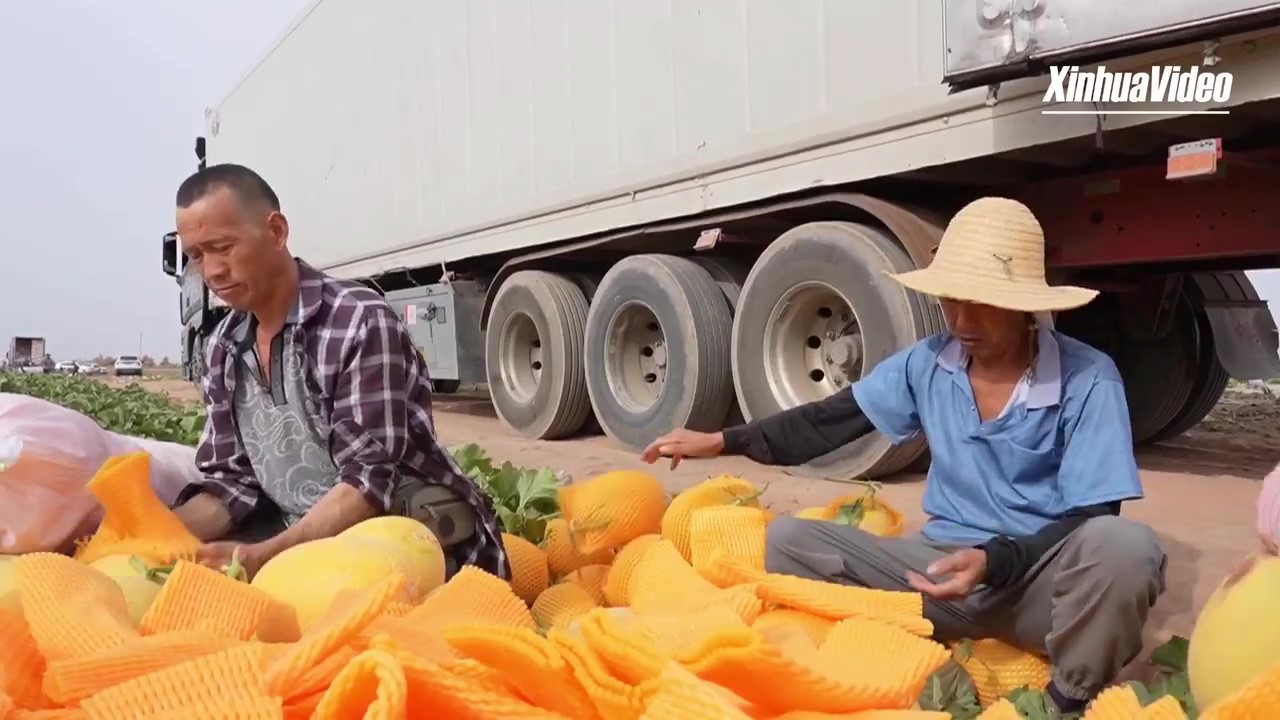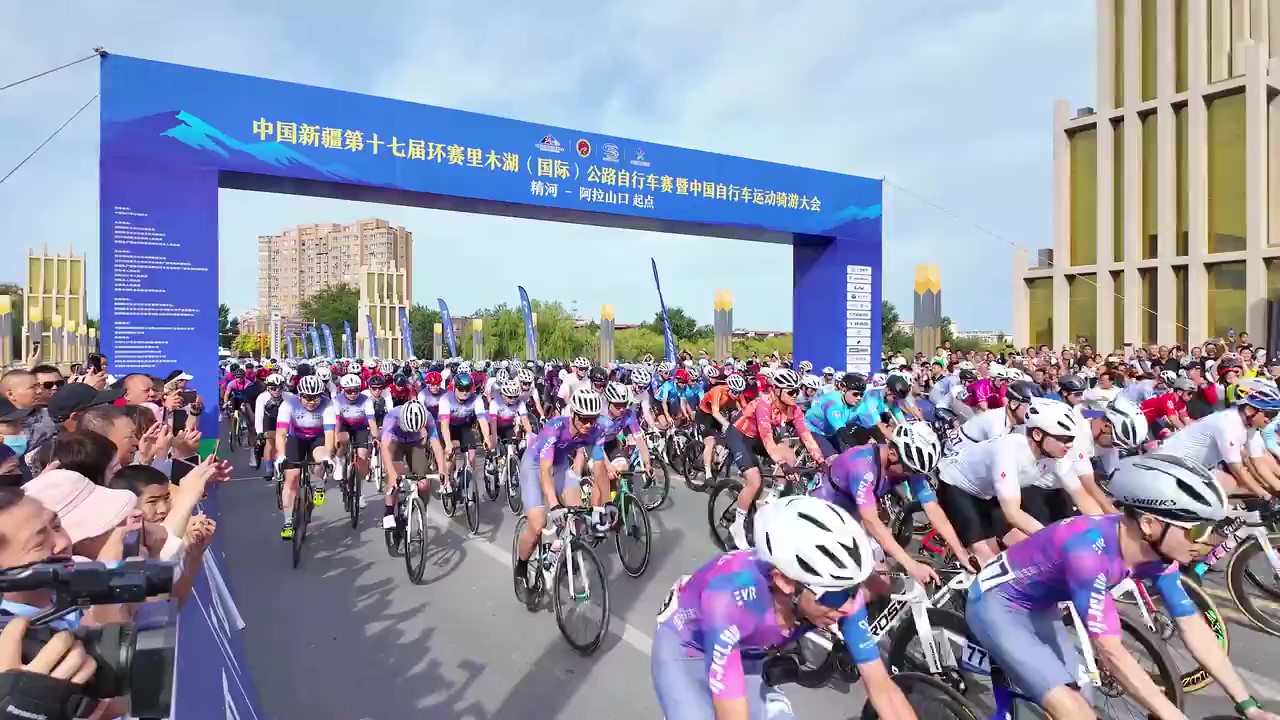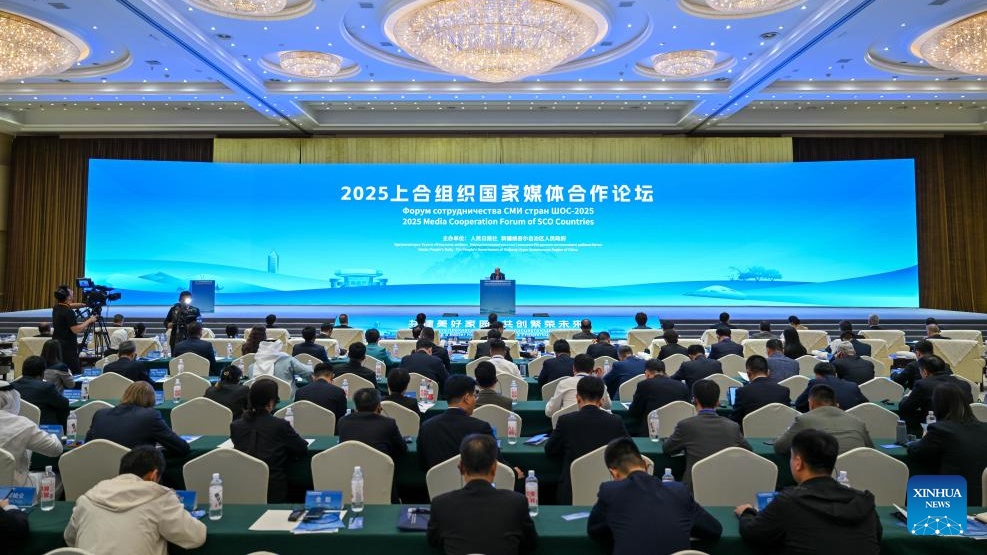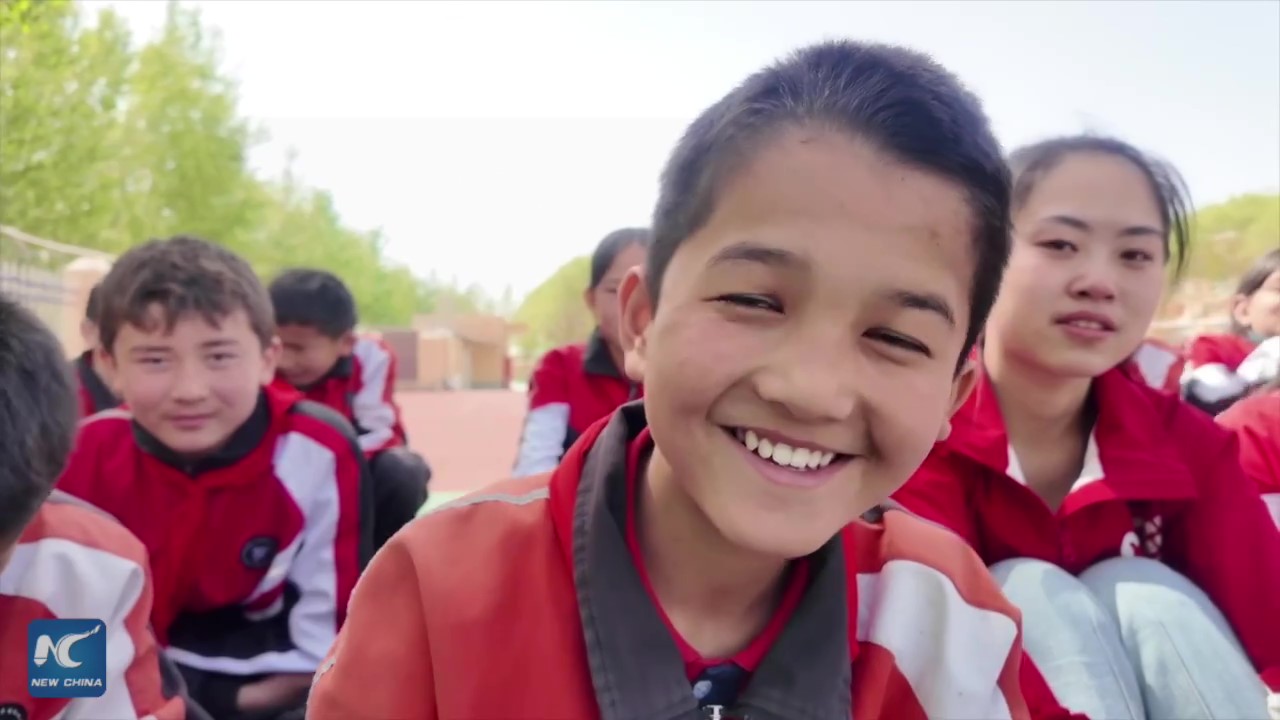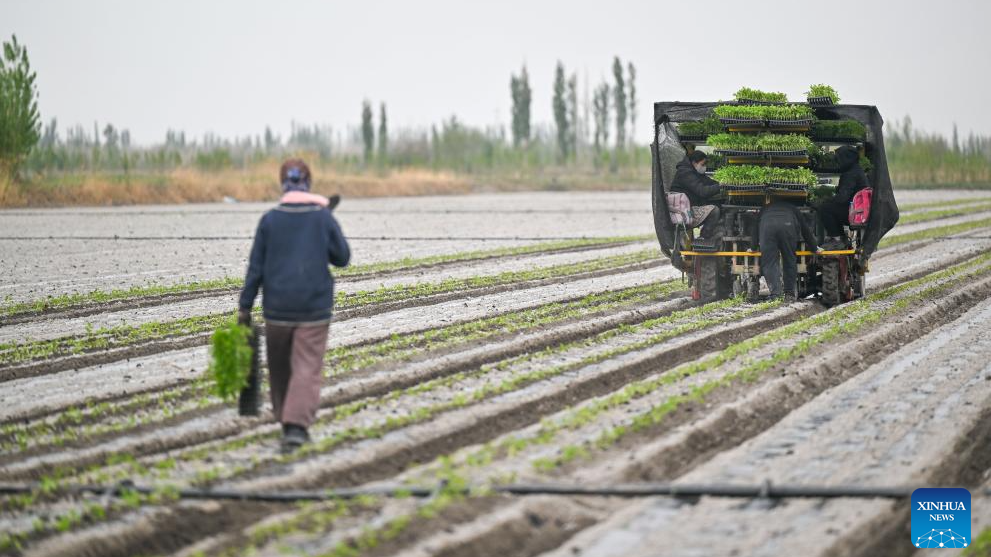The Yongkutongxin Village Smart Plant Factory, located in Kuqa city, Northwest China's Xinjiang Uygur autonomous region, is the first of its kind in the southern region to advance smart agriculture for shared prosperity.
Built under the Ningbo-Xinjiang cooperation program, it pioneers soilless cultivation technology to grow high-quality produce in a controlled environment.
Covering 6,912 square meters, the glass greenhouse combines artificial and natural light with smart systems that regulate light intensity, temperature, humidity and carbon dioxide levels. This enables the year-round production of vegetables, fruit, and medicinal herbs under stable conditions.
To meet local demand, the facility cultivates ten types of hydroponic vegetables, including spinach, lettuce, and coriander, on customized soilless planting beds during its initial phase.
Workers conduct virus disinfection before entering the operation zone, thereby protecting the plants from pests and disease. Beneath the plant rows, nutrient-rich water flows through the root zones, delivering oxygen and essential minerals that the plants need.
"Our vegetables are completely free of pesticides, heavy metals, and chemical residues," said Li Songsong, technical director of Kuqa Zhenxuan Supply Chain Co, which runs the plant.
"Vitamin C levels are two to three times higher than in conventional produce," he said. "The greens are clean enough to eat straight from the plant."
Thanks to the optimized growing environment, crop cycles from seeding to transplanting are half as long. In May, it takes only 11 days for spinach to reach transplanting conditions, whereas traditional planting takes about 32 days.
The plant is projected to produce 50 to 60 tons of vegetables annually, with over 18 tons already delivered to high-end supermarkets in Xinjiang.
Beyond agriculture, the plant also plays a pivotal role in rural revitalization by providing jobs and technical training to the villagers.
"I used to be a farmer," said Rozi Niyaz, a local villager who joined six months ago. "Now I earn 3,000 to 4,000 yuan ($555) a month, increasing my annual income by over 20,000 yuan".
Ali Keram, a former ranch worker who tends strawberries at the factory, values the improved work-life balance. Smart irrigation systems automate watering and monitor water use, leaf residue, and irrigation timing, saving a significant amount of labor.
"Now, I go home for lunch every day," he said. "And I have more time to spend with my family".
The factory employs over a dozen villagers like them, who work eight hours every day with a three-hour midday break.
Backed by funding and technical support from Ningbo city, Zhejiang province, this project also delivers training and modern agricultural knowledge, creating sustainable livelihoods for the villagers.
The factory is expanding into fresh juices, produce picking, e-commerce, and training programs, establishing a direct farm-to-table supply chain and positioning itself as an agricultural hub in southern Xinjiang.

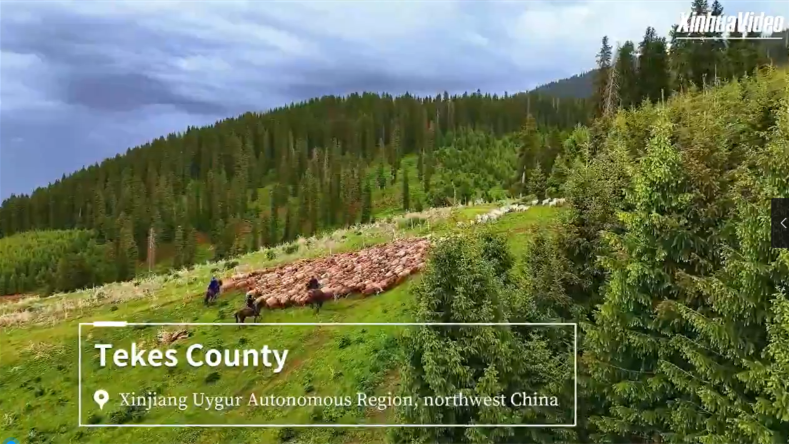
.png)
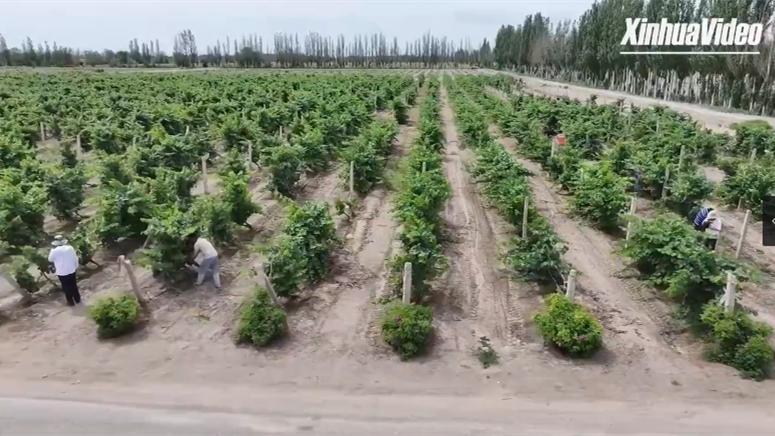
.png)

.png)




